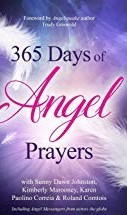I recently experienced “A Beautiful Day in the Neighborhood” and I would like to say my life has been changed for the better. And yet, it goes deeper than that, so deep, it’s hard to express with words. Below is my attempt at reviewing a movie that now lives inside of me.
The movie was based on an article written by Tom Junod for Esquire Magazine in November 1998 – ‘Can You Say…Hero?‘ Before I saw the movie, I read a quick review that liked the movie, yet felt the cynical reporter character couldn’t change that easily. Oh, what that critic missed.
As with most movies based on fact, the writers took liberties with the story and melded bits and pieces of Mr. Rogers history and moved them around. However, the HEART of Mr. Rogers is perfectly captured even if the timeline was a little different and a character background story rewritten. The reporter, played beautifully by Matthew Rhys, was fictionalized. I suspect that is why the name was changed from Tom Junod to Lloyd Vogel.
If you want to read about the fact versus fiction of the movie, CLICK HERE.
While the two main characters, Mr. Rogers, Tom Hanks, and Llloyd Voegl are fantastic, the entire supporting cast was excellent… especially Old Rabbit and Daniel, but I’ll let you see the movie to see what I mean.
Lloyd, a successful writer and yet bitter man is seemingly going through life with a big chip on his shoulder from a traumatic childhood. Again, I don’t want to give the story away, so I will leave it at that. (I will say though, that healing old wounds doesn’t mean you have to establish a relationship with those that hurt you. Healing wounds is for YOU, and you get to decide how to move forward with that person(s) in your life or not. The importance of healing the wound is that it releases the power they have over you.) Now a married adult with a newborn son, hiding from his childhood is getting harder and harder as he is now a father himself. He’s asked to write a short piece for Esquire Magazine on Mr. Rogers. This piece seems beneath him as he is an investigative journalist, but he takes the assignment anyway.
While his character has been fictionalized, the storyline seems to weave Mr. Rogers decades of teaching into helping Lloyd see the beauty in his life. That while Lloyd didn’t deserve the childhood he had, he also became who he is today because of it – a truth seeker. So for that critic who felt a cynical man couldn’t change, he wasn’t paying attention to the nuanced work Fred wove with each question and comment he made. It was a masterclass of what it looks like to move through your feelings rather than bury them and let them harden and become painful. So painful that every decision you make moving forward is guided by your pain rather than by your heart. Mr. Rogers was able to see through Lloyd’s cynical armor and simply liked him for who he was… not necessarily for who he was showing up to be. Wouldn’t it be nice if we could all see behind the armor we’ve created to protect ourselves from future pain?
Some of my favorite take away’s and scenes are:
-
Lloyd tells Joanne (Mr. Rogers’ wife) that Fred is a saint. She quickly denies that and says he is no saint and he gets angry too. She also added that he didn’t want to be considered a saint as that would put him out of reach for others to obtain what he did. He had a kindness practice that he worked on it daily and was diligent about it.
-
Everything Fred did was a purposeful teaching moment for kids. One scene he is trying to put up a tent and he is having difficulty. He is asked why not edit that part out of the show and he replies, kids need to see that adults have difficulties too.
-
When he was asked if he got angry, he said of course, but it’s how you express it. For him, it was playing the low keys on the piano and perhaps pounding them. There was a scene at the end that showed him playing beautifully and then adding a couple of pounding the key moments. I felt it was him getting his frustration out as although he knew he was doing great work…he wanted to do so much more.
While I must admit, I don’t recall much of Mr. Rogers in my childhood, I did know that he was dedicated to the betterment of children. It is when I saw the 2018 documentary, ‘Won’t You Be My Neighbor,‘ that I discovered just how much of an impact he made and it moved me. Between the documentary and this movie, I feel I have a far better understanding of who Mr. Rogers was, and yet, I’m sure that there is still so much more depth to his soul than I may ever know. Even though I don’t recall the role he played in my childhood, he has played a big role in my life as an adult and certainly more so after seeing these two brilliant films.
For the last many years I’ve been dedicated to choosing kindness. I choose it in my coaching practice, in my writing, in running Positive Focus, and in my daily personal life. I too practice kindness daily. Let me just say it’s not been an easy journey as fear is so much easier to navigate than choosing kindness when unkindness seems to have center stage. I am far from Mr. Rogers but I will do what I can from where I am to continue to be an example of what kindness looks like and does.
As I left the theater, I wondered to myself, what would Mr. Rogers do in the current climate where we have a leader who shoots out insults and hurts so many faster than an automatic weapon. Would he be angry? I’m sure he would. The question really was, what would he do with that anger. It didn’t take long for me to figure it out. Rather than return rapid-fire of anger back, Mr. Rogers would slow down, think and plan, and then create a direct opposite experience for children. An experience for children to move through the frightening situation with kindness as their guide and to let them know their feelings were valid and real.
Imagine with me for a moment, if we could all be a little more like Mr. Rogers and channel our anger and frustrations into bringing about the change we wanted to see in the world. A world of allowing and liking people exactly as they are.





